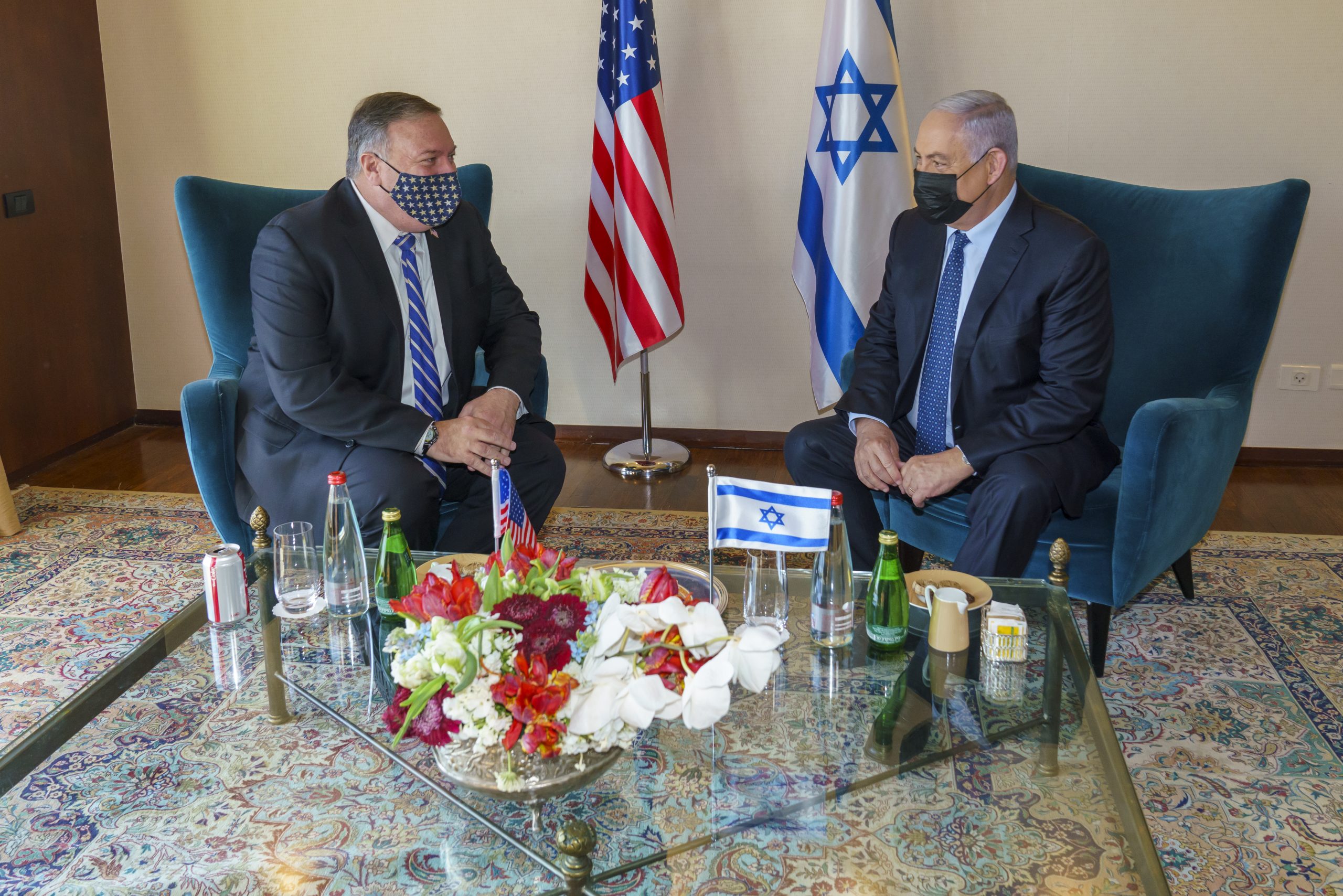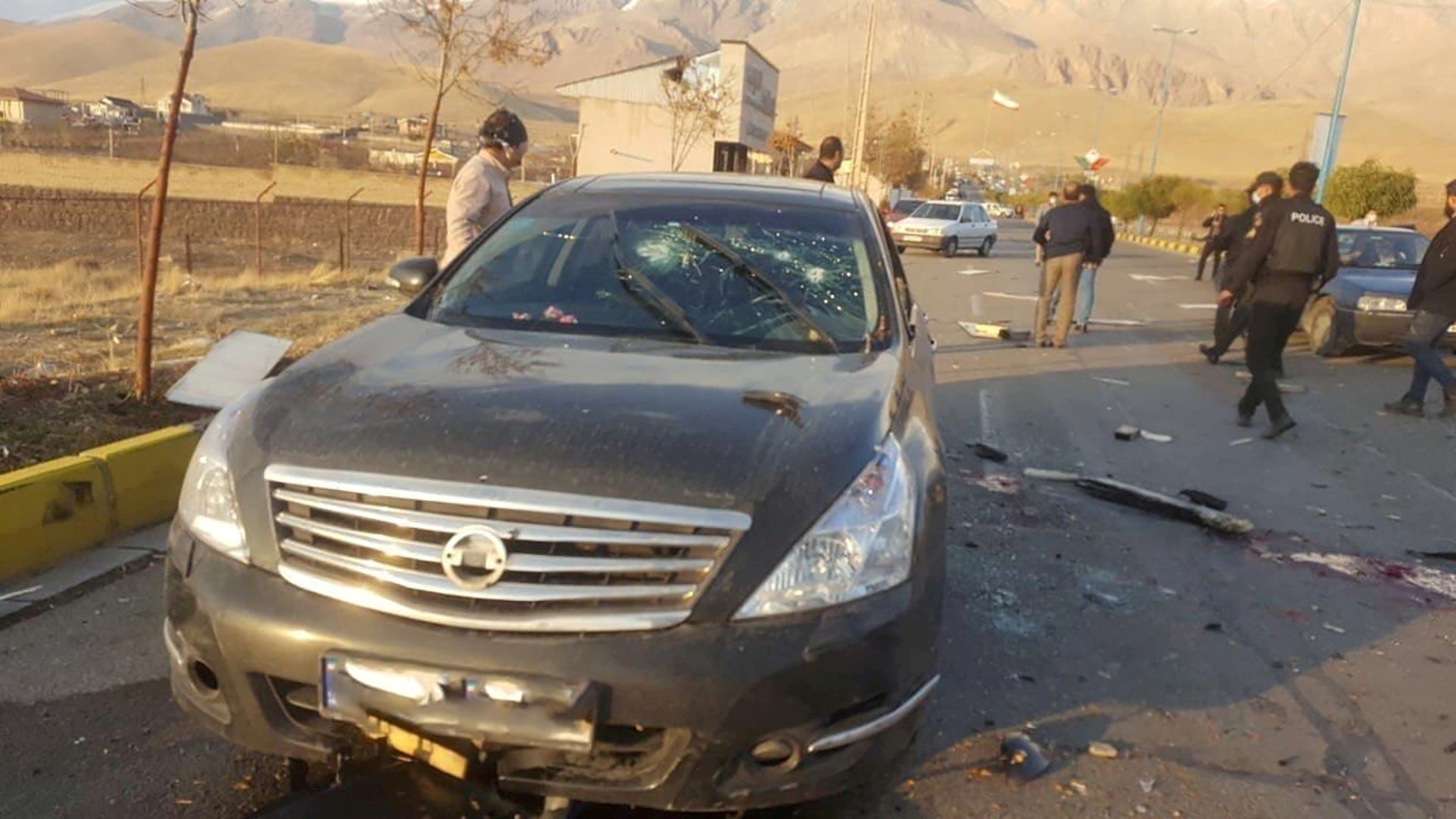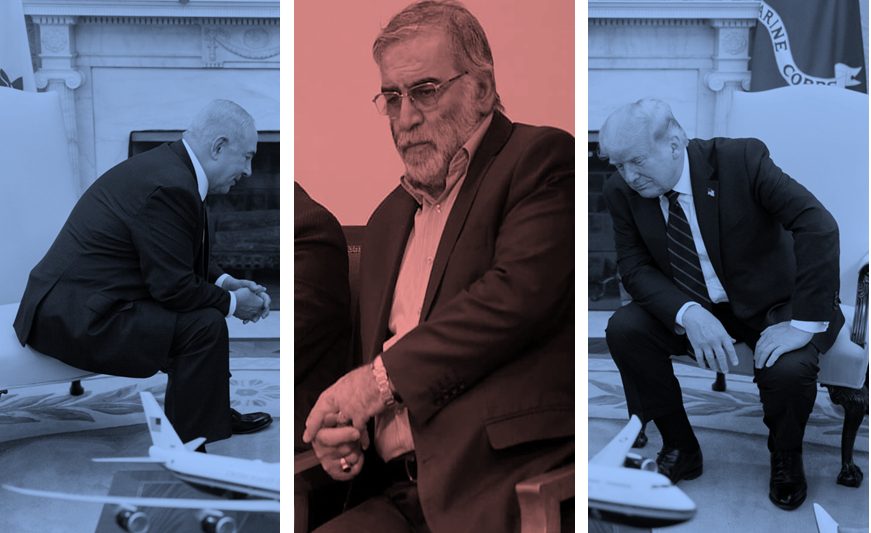Publications
INSS Insight No. 1410, December 2, 2020
The prevailing assumption in the Israeli and international media, and among governments around the world, is that the assassination of the head of Iran’s military nuclear project, Mohsen Fakhrizadeh, was carried out by Israel. If so, the costs and benefits of the assassination from Israel’s vantage point should be examined and weighed. To this end, certain questions must be answered: What was the strategic purpose of this action, and what is the likelihood of its ultimate success? In light of this goal, was the timing of the action correct? And finally, are the potential costs greater or smaller than the expected benefit? This article concludes that in the case of the killing of Fakhrizadeh, it is doubtful that the benefits outweigh the costs, and unclear that the assassination will substantially serve the goal of damaging and delaying the Iranian nuclear program.
No party has yet taken responsibility for the assassination of Mohsen Fakhrizadeh, the head of the Iranian nuclear weapons project, but the prevailing assumption in both the international and Israeli media and among governments around the world is that Israel is responsible. This assumption requires us to assess the costs and benefits of an Israeli decision to carry out the assassination. To this end, certain questions must be answered: What was the strategic purpose of this action, and what is the likelihood of its ultimate success? Given this goal, was the timing of the action correct? And finally, are the potential costs greater or smaller than the expected benefit?
If Israel is indeed responsible for Fakhrizadeh’s assassination, the decision to take this action was likely made with the approval of the Trump administration and in coordination with it, less than two months before President-elect Joe Biden enters the White House. Perhaps Israel and the United States deliberated and coordinated the strike during the most recent visit of Secretary of State Mike Pompeo to the region, on November 18-21, 2020. Perhaps there was also a certain level of coordination with the Saudi leadership during the clandestine tripartite meeting in the city of Neom in Saudi Arabia that included Israeli Prime Minister Israel Benjamin Netanyahu. Coordination and approval from the US are necessary, given that the US and the Gulf states may well pay some of the prices of the anticipated Iranian response.
The implicit, though in the absence of a claim of responsibility, unstated strategic goal is to damage the Iranian nuclear military project, delay its progress, and perhaps deter Iran from continuing it. This project, which was to be frozen for over a decade in the framework of the Joint Comprehensive Plan of Action (JCPOA) signed with Iran in 2015, was accelerated anew after President Trump withdrew from the agreement. According to the most recent report published by the International Atomic Energy Agency (IAEA), Iran has accumulated a quantity of nuclear material enriched at a low level that would suffice for one, and soon two nuclear warheads after enrichment to military-grade level, so that the breakout time to an Iranian nuclear weapon has been considerably shortened. For Trump and Netanyahu, the assassination presumably had two additional goals: the first is to make it more difficult for the incoming Biden administration to make good on its intention to return to the JCPOA with Iran. The second goal concerns domestic politics – to strengthen domestic support in Israel and the US for Netanyahu and Trump, respectively, and for their policies.

Beyond the moral question of the assassination is a question of principle: does the elimination of heads of organizations or systems, or central people within them, genuinely damage those organizations for a meaningful period of time? The record of Israeli-initiated killings is mixed: killings typically did not harm the capabilities of the attacked organizations for a meaningful period of time, and sometimes the opposite occurred. Such was the case, for instance, in the elimination of the leader of Hezbollah, Abbas Musawi, in 1992, which brought about the rise of Hassan Nasrallah. Few dispute that Nasrallah has been a more effective leader than his predecessor, and that Hezbollah’s capabilities have only improved under his leadership. Moreover, regarding killings, for the most part it is hard to pinpoint achievements that go beyond the tactical level and a limited period of time. One example was the killing of the leaders of Hamas in the Gaza Strip, which led Hamas to suspend its attacks on Israel for a while, but it is doubtful whether they altered Hamas’s underlying strategy or slowed the movement’s growth in power. Despite the talk about Ismail Kani (the successor to Quds Force commander Qassem Soleimani) as lacking both charisma and ties with the leaders of the Iranian regime, it is difficult to point to substantive changes in Iran's strategy and operations across the Middle East in general and Quds Force operations in particular since Soleimani was killed.
In the case of the Iranian nuclear program, the beginning of the last decade saw an assassination campaign against Iranian nuclear scientists. There is no evidence that this campaign caused a meaningful delay in the program or deterred Iranian nuclear scientists from participation in this nuclear program. Rather, political activities aimed at preventing cooperation with Iran, intelligence exposures, sanctions, cyber operations, and ultimately the JCPOA all contributed far more to slow down the program and deter Iran from breaking out to a nuclear weapon, out of concern for the potential costs of progressing with the program. It appears that at the time of these assassinations, the Iranian project was too extensive and mature for a few killings to substantively affect it. As for Fakhrizadeh, he is portrayed as a charismatic and effective leader of the military component of the project and ostensibly seems irreplaceable. But is that so? Or could it be that this assessment stems from the tendency to glorify the enemy in front of us? Experience teaches that there is no way to know in advance whether the successor will be better or worse than the predecessor.
The question of timing influences the cost-benefit calculus. It can be argued that the assassination was only possible ahead of Biden’s entry into the White House, since presumably the new President would not have given his approval for such an action. Thus, if the action has value it is only within this time frame. However, this claim relies on the assumption that there is no possibility of slowing the Iranian nuclear project via an agreement between Iran and the world powers. This assumption contradicts the success of the existing agreement to slow the project at least for a limited period, as well as the chances that the new US administration would manage to renew the prior agreement and even improve and expand upon it in additional areas. Similarly, it denies that the US could initiate a process of reconciliation with Iran, which in the longer term would delay and damage the project more significantly, even if the prospects of such an eventuality are slim. The argument also ignores the possibility that even without the assassination, the new administration’s efforts to reach an agreement with Iran will fail, partly because of the political changes both within Iran and in Iranian-US relations since the US withdrawal from the nuclear agreement and the renewal of sanctions on Iran. On the one hand, Iranian mistrust of the US and its political system has increased greatly; no one can guarantee to Iran that a new administration in four years won’t return to Trump’s policy. On the other hand, these developments have greatly strengthened the status of hardliners in Iran who are opposed to any nuclear agreement whatsoever, and in the upcoming Iranian presidential elections, scheduled for June 2021, it is likely that a conservative candidate will emerge the victor. Presumably, an assassination of this kind would come with a lower price if it took place after a Biden administration tried and failed to reach a pact with Iran.

In contrast, the actual timing of the assassination is likely to exact high political costs, and particularly if the assassination results in the US becoming embroiled in a war in the region (though such a scenario seems unlikely). Severe international condemnations from the European Union and the UN Secretary General were expected, but the harsh condemnations in the United States and the blunt language from those close to the Democratic Party are unprecedented. Israel is portrayed as a terrorist criminal state. The killing is seen by many as a Trump-Netanyahu conspiracy to thwart one of the major components of the new administration’s policy, which believes that the effort to prevent Iran from obtaining nuclear capability by withdrawing from the JCPOA and exacerbating sanctions has failed; since according to this perspective Trump's policy has in practice only revived the Iranian nuclear program and brought Iran closer to the bomb, the right path is a returning to an agreement supported by the threat of sanctions and military action. Even before the assassination, relations between Prime Minister Netanyahu and the Democratic Party were tarnished due to Netanyahu’s blatant stance against the Obama administration and its policies, as well as his intimacy with Trump and the Republican party; against this backdrop, bipartisan support for Israel has been severely eroded. Though Biden himself belongs to the moderate wing of the Democratic party and has a record of consistent support for Israel, it is doubtful that he will be able to sit in silence in the face of Prime Minister Netanyahu's derision toward him and his party. Biden may be hard pressed to resist the more progressive elements in his party, some of whom are already pushing for a change in policy toward Israel. In addition, confrontations between Israel and the new administration are also expected on issues related to the Israeli-Palestinian conflict, if Netanyahu does not change his policy in this area.
Israel’s image in the international arena has been damaged greatly by the description advanced by important figures in the US of Israel as a terrorist-criminal state that deviates from accepted international norms. Against this background, the condemnation of the assassination by other Western countries assumes greater significance.
Beyond the political costs, Iran’s expected violent response to Israel, and possibly also against the US and the Gulf states, must be considered; this could well be joined by the reduced cost that Iran itself will pay in the international arena for its actions. If killing nuclear scientists in Iran is accepted as legitimate, then for many in the world, the killing of Israeli scientists and others, as well as other Iranian violent reactions, would also be rendered legitimate. However, the Iranian leadership is typically cautious and measured. Iran might not respond to Israel before the new US administration assume office, and it may not respond to the US at all so as not to ruin its prospects of talks with the new administration, though it is difficult to see how in the long term Iran would forfeit a response to Israel.
In the event that Iran does not respond before Biden enters office and does not react at all toward the US, there is a not insignificant chance that Biden’s determination to carry out his policy will even be strengthened by the blunt Trump-Netanyahu attempt to foil the new administration’s expected approach, a moment before it begins its term. Hence, even the goal of frustrating Biden’s policy may not be achieved.=
In conclusion, the violent reaction of an enemy and rival to any violent action that Israel takes against it must always be considered, as well as the costs of such a response. Israel is able to deal in the world of actions and reactions, but it must weigh the gains against potential risks. In the case of the Fakhrizadeh assassination, it is doubtful if this balance yields a positive result, or whether the killing will significantly serve the objective of damaging and delaying the Iranian nuclear project. In any case, it is to be hoped that domestic political motivations, both in Israel and the United States, were not the primary motivation for action.



